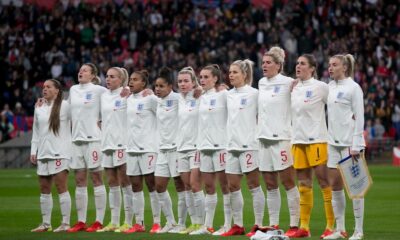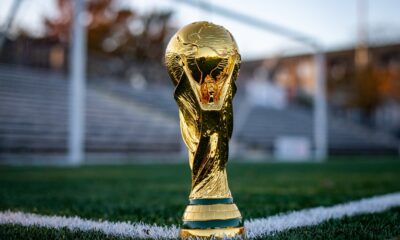International Football
Can England’s Penalty Problem Be Saved?
By Isabella Stockwell.
There’s no denying it, we just can’t take a good penalty. The worst penalty shoot out record goes to England, who has an international tournament win rate of 17%. And with penalties being the expected scourge of the English, it’s inevitable that a penalty shootout will have the nation at the edge of their collective seat this summer.
A missed penalty is enough to make a grown man cry (Terry, anyone?), and it’s not surprising; just one penalty can be the difference between glory, and the plane home. The three lions have been on that very plane home in recent years after exiting the last five out of eight of their major tournaments on penalties; the World Cups of 1990, 1998 and 2006, and the European Championships of 1996 and 2004. Even after recent mock-up penalty shoots in their high altitude camp in Austria, can England conquer their great penalty barrier?
Under the close inspection of Fabio Capello, penalty takers have been practicing for this very weakness at the training camp, which ex-England penalty villain Southgate says could be England’s saving grace. Southgate’s missed penalty against Germany saw England crash out of Euro ‘96, which surely would have served as a warning to Glenn Hoddle’s squad in 1998. Seems not, as Hoddle’s team lost to Argentina on, you guessed it, penalties. But why? His decision not to practice penalties may have been to blame. A decade later, Hoddle still harbours regrets, and offers the current squad the advice that visualisation is the key to succeeding in penalty shoot-outs. A player must picture the ball going in the net, for it to go in the net. He has spotted that, before the player has even left the half way line, by the placement of the ball and the player’s eyes, he can tell if the kicker will succeed. Shame he didn’t realise that sooner.
However, Hoddle may have hit the nail on the head; sports researcher Greg Wood has found that the movement of a players eyes is a sure indicator of success. Wood told Exeter football players there would be a £50 prize for the best goal whilst undertaking research on penalty kicks, and in doing so found that the players usually shot in the middle of the goal- a much easier position for the goalkeeper to save, whereas when there was no cash prize pressure, the players would shoot aim for the corners, a much harder place for the goalkeeper to save. If the match is intense and the player has the added responsibility of a winning penalty, he views the goalie as more of a threat, and will undoubtedly look at the goalie more than he should when taking the penalty. This small change in eye movement effects his shot, making him far more likely to cluster his shot in the ‘easy to save’ centre of the goal.
So with the pressure in South Africa likely to get to the players, is there anything the squad can do? We have seen good penalty takers crumble at the penalty spot, notably Lampard, Gerrard and Carragher failing miserably at the last World Cup, in what Capello describes as the ‘lottery‘of penalty taking.
It seems there is far less luck behind a penalty kick, with statistical data revealing some information that Capello might be interested in.The economist Professor Ignacio Palacios Huerta found that the team who shoots first is likely to win 60% of the time. So that’s the coin toss decision covered. Sport researchers at Lucozade found that the most likely player to score a penalty is a young striker, taking a run up from the outside box, hitting with the inside of the boot with his natural foot, to the top left hand corner after playing 45 minutes or less on the pitch. This may be especially useful to Capello, as Lampard’s (England’s current penalty taker) recent penalty blips, against Portsmouth and Japan, may have left him low on confidence. Capello needs a young striker to play one half and take the penalty if we are to guarantee statistical success, but with Rooney the only young striker… this strategy looks unlikely.
Other useful strategies that could help England pave their path to victory include the mixing strategy (which has been successful for Franck Ribery) which means that the penalty taker aims for the same place no more than four times in a row, making it hard for goalkeepers to establish patterns. The best way to mix strategies is by taking a kick with the natural instep of the foot 61.5% of the time and shooting the opposite way the rest of the time, leaving the goalie uncertain as to where and how the player will kick. In a game where every goal counts, none is more crucial than the first it seems; when a team misses its first shoot-out, their chance of losing the match is 78.5%. In other words, Capello needs to be sure that the first penalty goes in, cue arguments about whether Lampard is the right man in light of his recent disappointing performance.
Whether the stats will actually help when it comes down to the game, we will have to see, and just hope that this is the year England exorcise their penalty demons.
How do you think England should deal with its penalty problem? Comment and let me know…




















